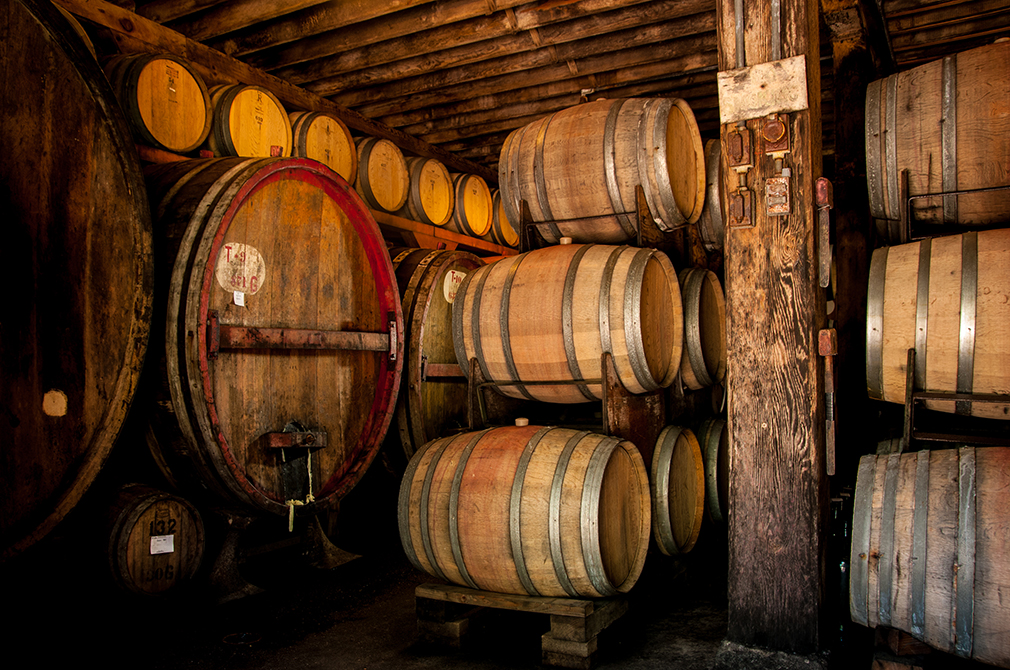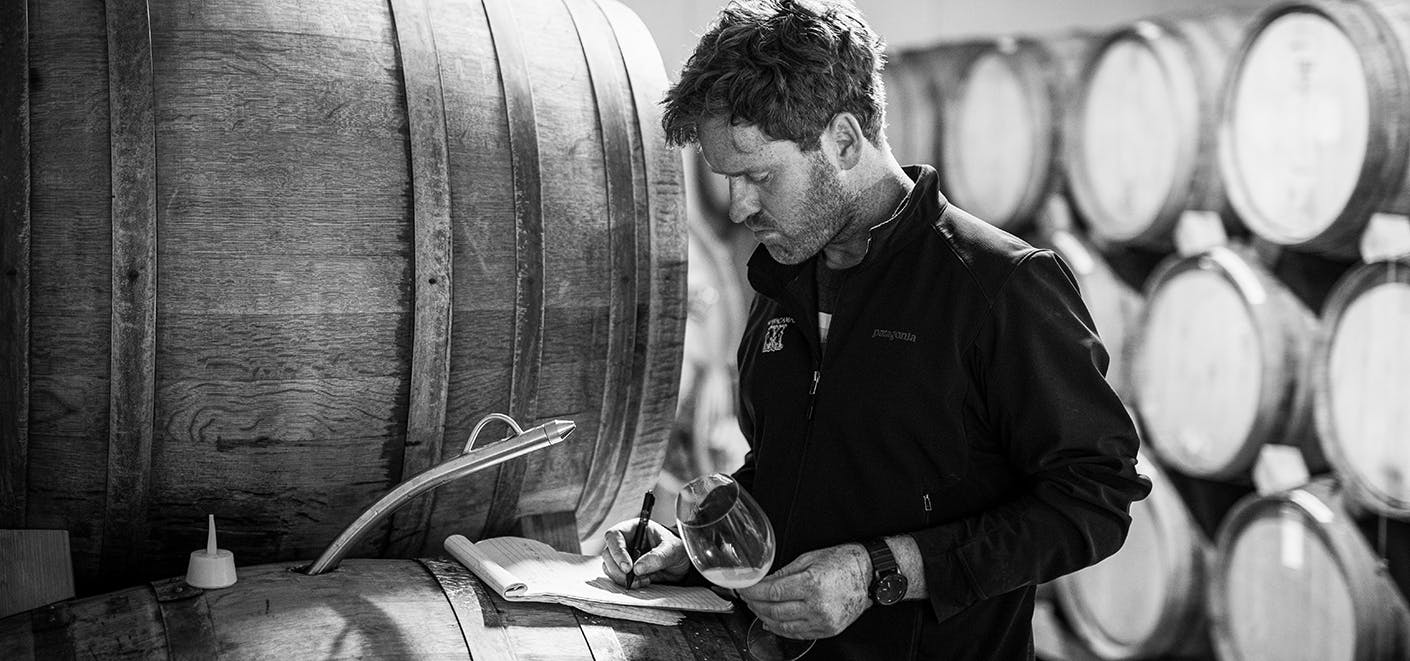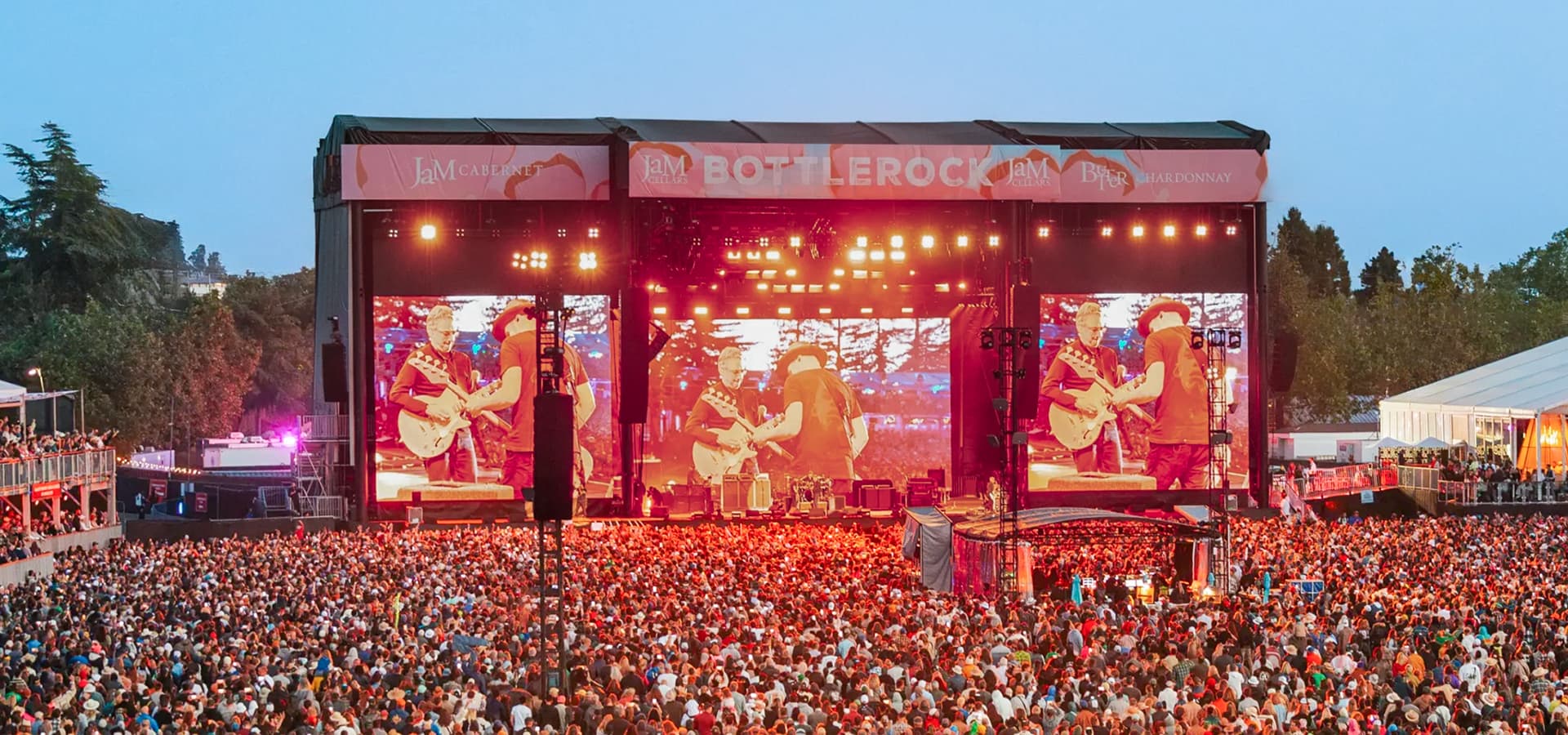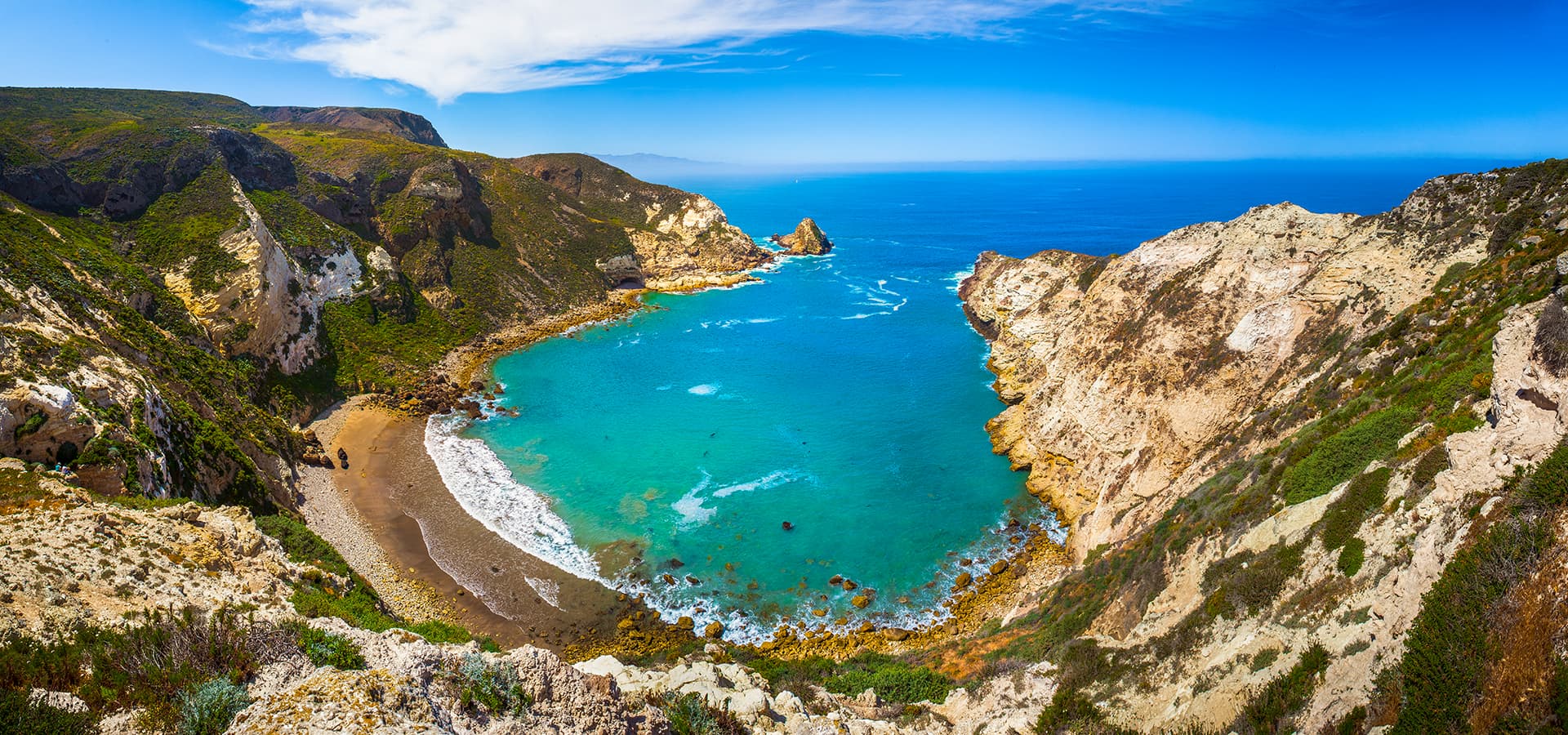According to the Chinese Zodiac, 2022 is the year of the tiger. Not in Napa—at least not for Mayacamas Vineyards and Winery. The 70-year-old winery has christened 2022 “the year of exploration,” and for good reason.
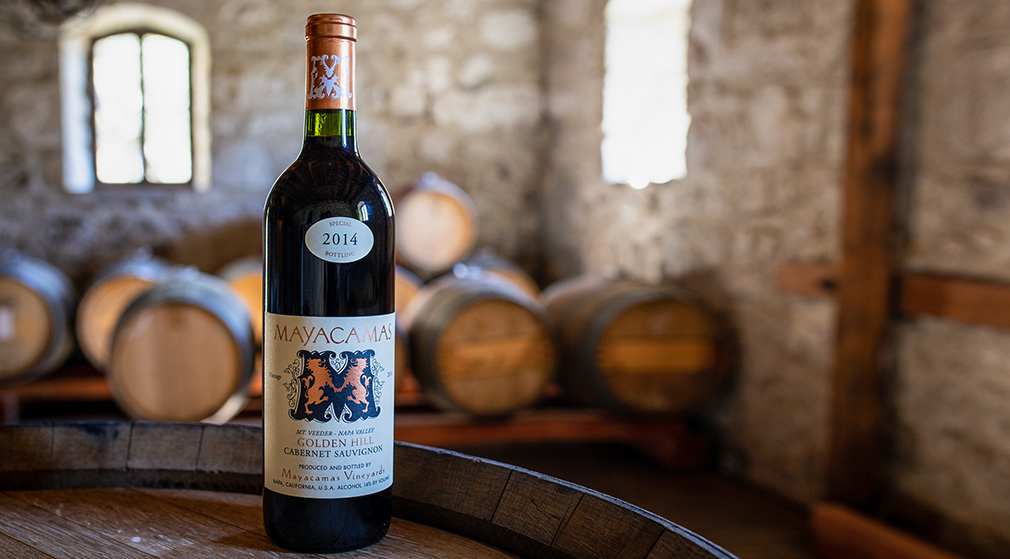
Set upon a 475-acre parcel of land near the summit of Mount Veeder, the Mayacamas winery can be graciously described as “out of the way.” To reach the threshold of the old stone winery—an edifice that has changed only slightly in the 132 years since it was built—prospective visitors must first make a reservation, then make the 30-minute pilgrimage up a series of winding roads from downtown Napa.
Except that for the past four years, the winery was limited in its ability to welcome guests onto its property.
The wildfires that ravaged much of Napa Valley during the fall of 2017 unfortunately did not spare Mayacamas. Instead, the late-19th-century building that had previously served as the venue for private tastings and dinners was destroyed. It’s a moment in time that winemaker Braiden Albrecht vividly recalls.
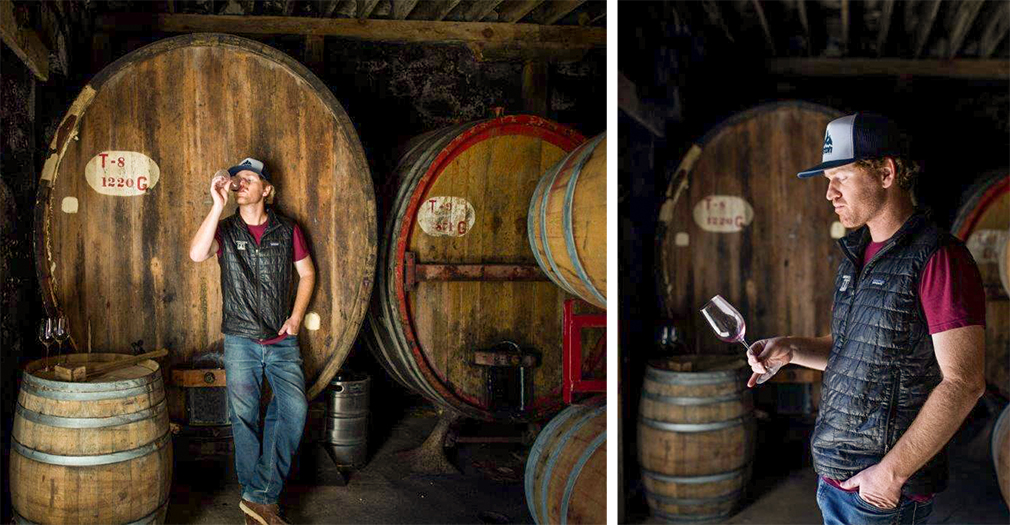
The rubble had not yet been cleared—in fact, the impacted areas of the winery were still smoldering—when Albrecht and the winery’s owner Jay Schottenstein began to discuss what they wanted to rebuild and how they wanted to rebuild it. “I remember Jay saying that we’re going to get started on this right away, and we’re going to bring it back to life and make it better than it was before,” Albrecht recalls. “We started quickly and were able to move at a pretty good pace.”
As the winery worked to build a new hospitality venue on site, it also turned its attention to downtown Napa, opening a tasting room on First Street in 2019. For the past two years, guided tastings of Maycamas’ Chardonnay, Sauvignon Blanc, Cabernet Sauvignon, Merlot, and Grenache Rosé could only be experienced in that sleek and modern storefront. However, in early December, Mayacamas completed the four-year project that brought the winery’s hospitality center up on Mount Veeder back to life.
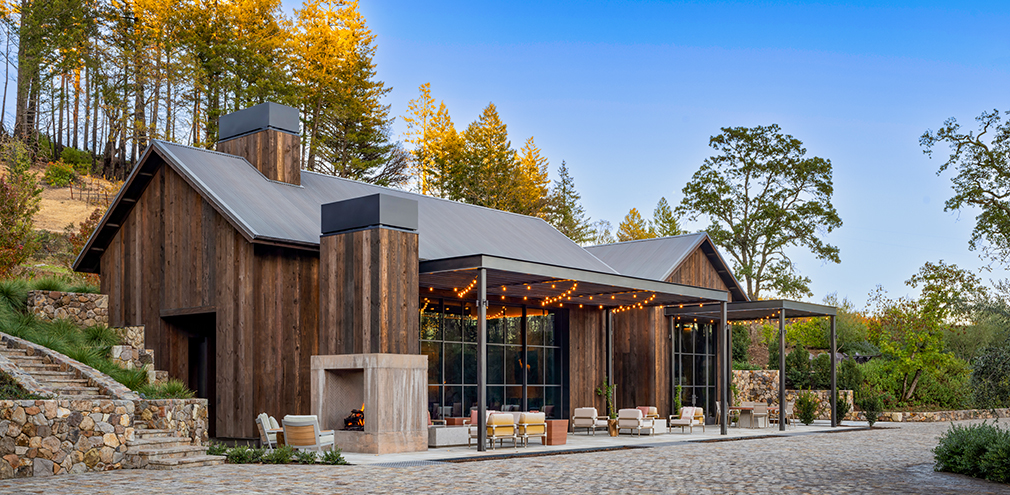
Sporting an agrarian vernacular design, the new 3,000-square-foot building features broad, sliding glass walls that, when opened, blur the boundary between indoor and outdoor seating areas. “What makes Mayacamas stand out is the site and the rugged terrain of it,” Albrecht explains. “On a nice day out there [at the new hospitality center], you’re very much a part of the environment.”
The transition from the original stone structure to a more contemporary new edifice brings a few concessions. Most notably, a certain romanticism has been lost—a sacrifice that is inevitable when a modern building replaces one that was erected more than a century ago. But in place of that history, the winery’s new hospitality center allows the team to host private groups with more confidence. It allows them to deliver a service that is more refined and it presents more entertaining space for the staff to elevate a guest’s experience. Most significantly, it allows the winery to introduce visitors to its wines in an environment that also showcases the beauty and the significance of the place where those wines are made.
“There is a level of comfort and luxury to the new building,” Albrecht says. “There’s a level of polish there, which is a welcome addition that doesn’t detract from the rustic nature of the rest of the property.”
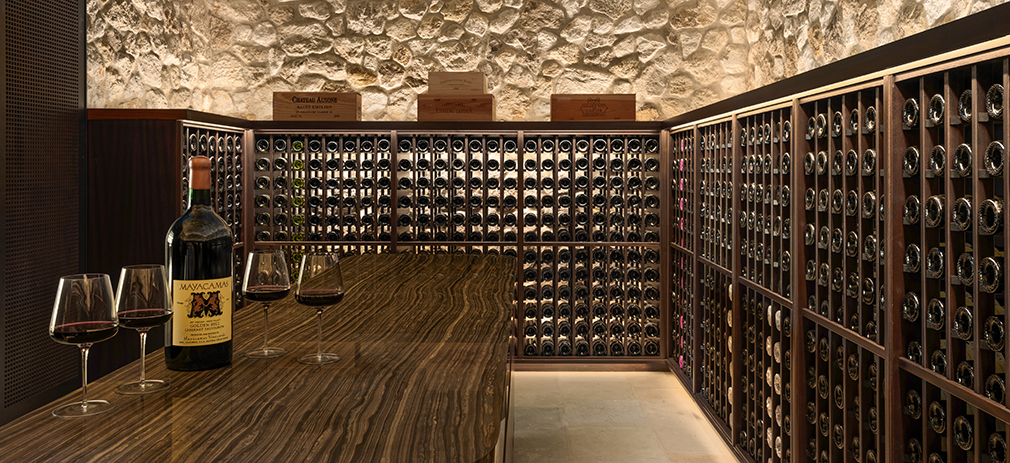
Albrecht acknowledges that first impressions of Mayacamas’ wine that are made inside the First Street tasting room can be impactful—as he says, the staff “brings down a lot of what makes the mountain special”—but a visit to the winery itself delivers an immersive experience that more strongly conveys the uniqueness of the longstanding label’s wines and the traditional winemaking processes that are used to create them.
Those impressions are made the moment visitors step foot inside the old stone winery, which Albrecht and his team affectionately call “the red cellar.” The ground floor ageing cellar is filled with tools that have been passed down from previous generations of winemakers, and the walls of the cellar are lined with a mix of small oak barrels and large foudres—wooden vats that are popular winemaking vessels in France’s Rhône Valley—some as large as 1,200 gallons. “If you’ve been to a lot of wineries in Napa, the cellars have a certain look to them,” Albrecht says. “Mayacamas is different. Here, the cellar has an Old World look. It brings you more to Barolo or the northern Rhône.”
While Mayacamas’ red cellar makes a bold statement about the property’s winemaking philosophy, the most significant revelations occur when guests are taken on ATV tours up to the summit of Mount Veeder, some 1,800 feet above the winery. It’s on those tours that visitors can begin to understand how divergent one block of vines can be from the next, not to mention just how dramatic the winery’s entire network of vineyards happens to be. “People realize that Mayacamas is a pretty intense property,” Albrecht says. “Being able to see it and experience it puts some things into perspective. It’s understanding the vineyards and the microclimates and the soils of Mount Vedeer that give us the right starting point for all of our wines. It brings to life a lot of the stylistic imprints that the wines can have, and it’s hard to do that unless you’re up here.”
